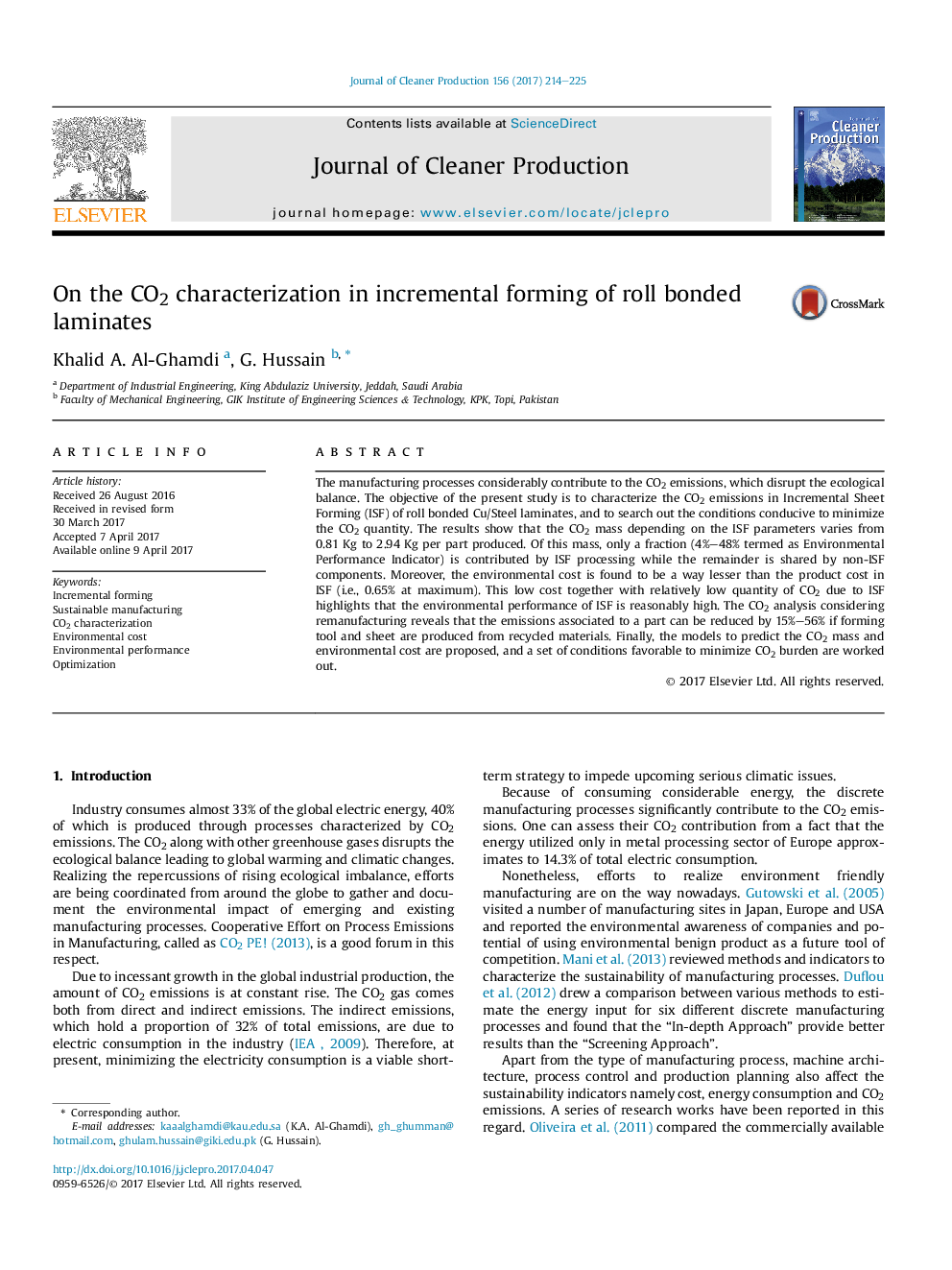| Article ID | Journal | Published Year | Pages | File Type |
|---|---|---|---|---|
| 5480978 | Journal of Cleaner Production | 2017 | 12 Pages |
Abstract
The manufacturing processes considerably contribute to the CO2 emissions, which disrupt the ecological balance. The objective of the present study is to characterize the CO2 emissions in Incremental Sheet Forming (ISF) of roll bonded Cu/Steel laminates, and to search out the conditions conducive to minimize the CO2 quantity. The results show that the CO2 mass depending on the ISF parameters varies from 0.81Â Kg to 2.94Â Kg per part produced. Of this mass, only a fraction (4%-48% termed as Environmental Performance Indicator) is contributed by ISF processing while the remainder is shared by non-ISF components. Moreover, the environmental cost is found to be a way lesser than the product cost in ISF (i.e., 0.65% at maximum). This low cost together with relatively low quantity of CO2 due to ISF highlights that the environmental performance of ISF is reasonably high. The CO2 analysis considering remanufacturing reveals that the emissions associated to a part can be reduced by 15%-56% if forming tool and sheet are produced from recycled materials. Finally, the models to predict the CO2 mass and environmental cost are proposed, and a set of conditions favorable to minimize CO2 burden are worked out.
Keywords
Related Topics
Physical Sciences and Engineering
Energy
Renewable Energy, Sustainability and the Environment
Authors
Khalid A. Al-Ghamdi, G. Hussain,
